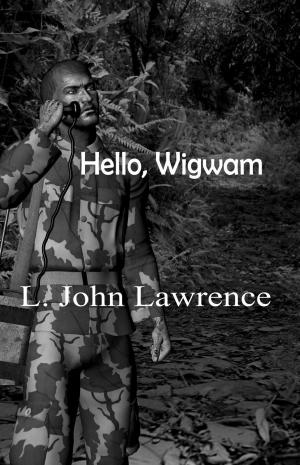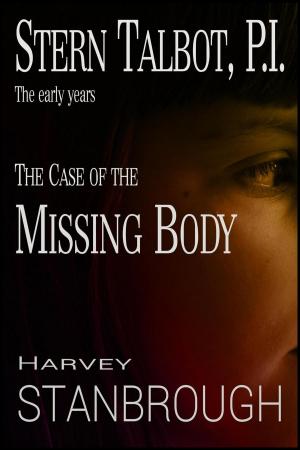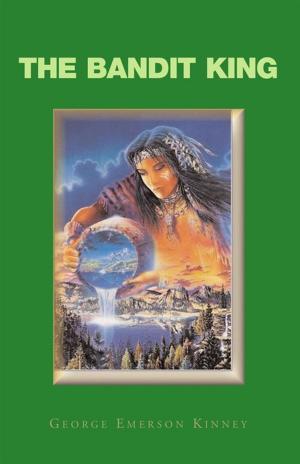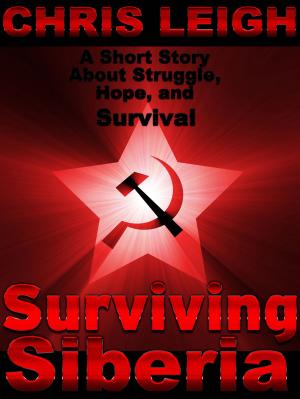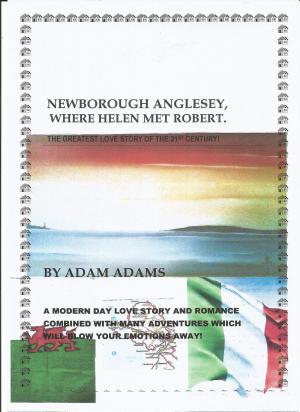EXIT VISA
A journey through hell
Fiction & Literature, Horror, Science Fiction & Fantasy, Action Suspense| Author: | Marcus Clark | ISBN: | 9780980656244 |
| Publisher: | Marcus Clark | Publication: | October 27, 2012 |
| Imprint: | Language: | English |
| Author: | Marcus Clark |
| ISBN: | 9780980656244 |
| Publisher: | Marcus Clark |
| Publication: | October 27, 2012 |
| Imprint: | |
| Language: | English |
EXIT VISA is a factual novel about the aftermath of the Vietnam war, a vivid and gripping narrative, it chronicles the horrors experienced by those who fled after the fall of Saigon.
We have all seen movies about Vietnam. But have you ever noticed, none of them tell you what happened when the war ended? What happened to the population when the communists took over? Why did hundreds of thousands of people flee? What happened in Kampuchea that led to two million people dying?
EXIT VISA gives vivid descriptions of the last days of the Vietnam war; the murder of the Kampucheans during Year Zero; working on the Ho Chi Minh Trail; living in Saigon after the communists took over; the fleeing of 'boat people' from Vietnam; the boat journey to Malaysia; resettlement in Australia. This is one of the few books published (in English) that describes these events through Vietnamese eyes.
In this novel a young schoolteacher and her family flee the approaching communist army. A brutal and corrupt police sergeant bribes his way out of Saigon and onto a jet. An elderly jeweller watches in despair as the city and people he loves are destroyed. A Khmer Rouge fanatic, trained to torture for pleasure and to kill on orders, seeks sanctuary in Vietnam; a young communist soldier loses his faith in the new order and goes into hiding and starvation with a frightened woman and her children. Each is seeking an Exit Visa, no matter what the price.
EXIT VISA
Reviewed by Bruce Gillespie
Exit Visa is an epic work of fiction that tells most Australians what they don't know about the Vietnam War, the emigration of the 'boat people', and the difficulties that South-East Asian people face in Australia today. Clark analyses an entire era of world history. He shows how people are formed or malformed by their circumstances. The two main influences in the real world are hunger and thirst. Hounded by disaster, some people become greedy, cruel or even berserk, while others become almost superhumanly altruistic. Ideologies crumble under such pressures or become weapons in the hands of individuals, remarkable people, who can find redemption if allowed to do so.
Exit Visa is written in the unadorned cryptic style of the thriller, but maintains a high level of complexity. It is told in a series of first-person narratives. Six Vietnamese people and one Australian sound as if they are talking very rapidly into a tape-recorder while in imminent danger of losing their lives. This device works, as throughout the novel most of the characters usually are in imminent danger of losing their lives.
Through their experiences the reader lives through the Vietnam War and the beginnings of the Communist government in South Vietnam, a perilous boat expedition from Vietnam to Australia in 1978, and a disrupted existence in Brisbane during the late 1970s and early 1980s.
The most interesting character is Phong Van Giang. At First he seems a pallid character. After he joins the Khmer Rouge in Kampuchea he discovers in himself a thirst for random violence. Increasingly berserk, he lurches into Vietnam, becomes a pirate who preys on the boat people, and turns up as it knife-wielding rapist in Brisbane at the end of the novel. The author convincingly presents each stage of Phong Van Giang's personality disintegration.
EXIT VISA is a factual novel about the aftermath of the Vietnam war, a vivid and gripping narrative, it chronicles the horrors experienced by those who fled after the fall of Saigon.
We have all seen movies about Vietnam. But have you ever noticed, none of them tell you what happened when the war ended? What happened to the population when the communists took over? Why did hundreds of thousands of people flee? What happened in Kampuchea that led to two million people dying?
EXIT VISA gives vivid descriptions of the last days of the Vietnam war; the murder of the Kampucheans during Year Zero; working on the Ho Chi Minh Trail; living in Saigon after the communists took over; the fleeing of 'boat people' from Vietnam; the boat journey to Malaysia; resettlement in Australia. This is one of the few books published (in English) that describes these events through Vietnamese eyes.
In this novel a young schoolteacher and her family flee the approaching communist army. A brutal and corrupt police sergeant bribes his way out of Saigon and onto a jet. An elderly jeweller watches in despair as the city and people he loves are destroyed. A Khmer Rouge fanatic, trained to torture for pleasure and to kill on orders, seeks sanctuary in Vietnam; a young communist soldier loses his faith in the new order and goes into hiding and starvation with a frightened woman and her children. Each is seeking an Exit Visa, no matter what the price.
EXIT VISA
Reviewed by Bruce Gillespie
Exit Visa is an epic work of fiction that tells most Australians what they don't know about the Vietnam War, the emigration of the 'boat people', and the difficulties that South-East Asian people face in Australia today. Clark analyses an entire era of world history. He shows how people are formed or malformed by their circumstances. The two main influences in the real world are hunger and thirst. Hounded by disaster, some people become greedy, cruel or even berserk, while others become almost superhumanly altruistic. Ideologies crumble under such pressures or become weapons in the hands of individuals, remarkable people, who can find redemption if allowed to do so.
Exit Visa is written in the unadorned cryptic style of the thriller, but maintains a high level of complexity. It is told in a series of first-person narratives. Six Vietnamese people and one Australian sound as if they are talking very rapidly into a tape-recorder while in imminent danger of losing their lives. This device works, as throughout the novel most of the characters usually are in imminent danger of losing their lives.
Through their experiences the reader lives through the Vietnam War and the beginnings of the Communist government in South Vietnam, a perilous boat expedition from Vietnam to Australia in 1978, and a disrupted existence in Brisbane during the late 1970s and early 1980s.
The most interesting character is Phong Van Giang. At First he seems a pallid character. After he joins the Khmer Rouge in Kampuchea he discovers in himself a thirst for random violence. Increasingly berserk, he lurches into Vietnam, becomes a pirate who preys on the boat people, and turns up as it knife-wielding rapist in Brisbane at the end of the novel. The author convincingly presents each stage of Phong Van Giang's personality disintegration.



